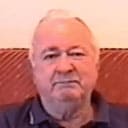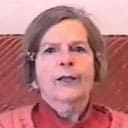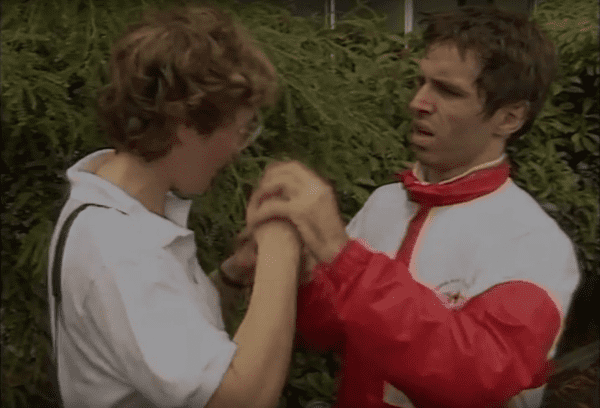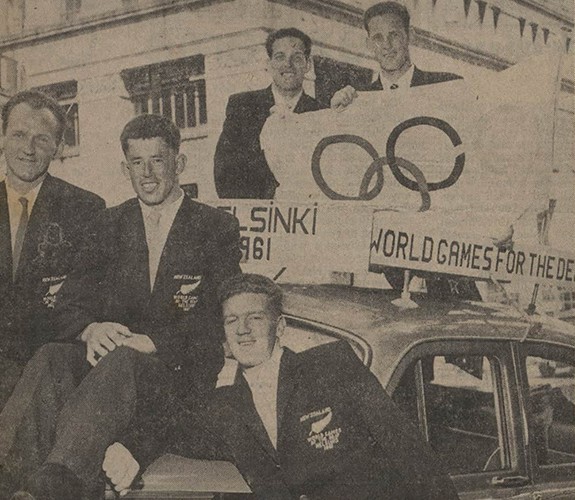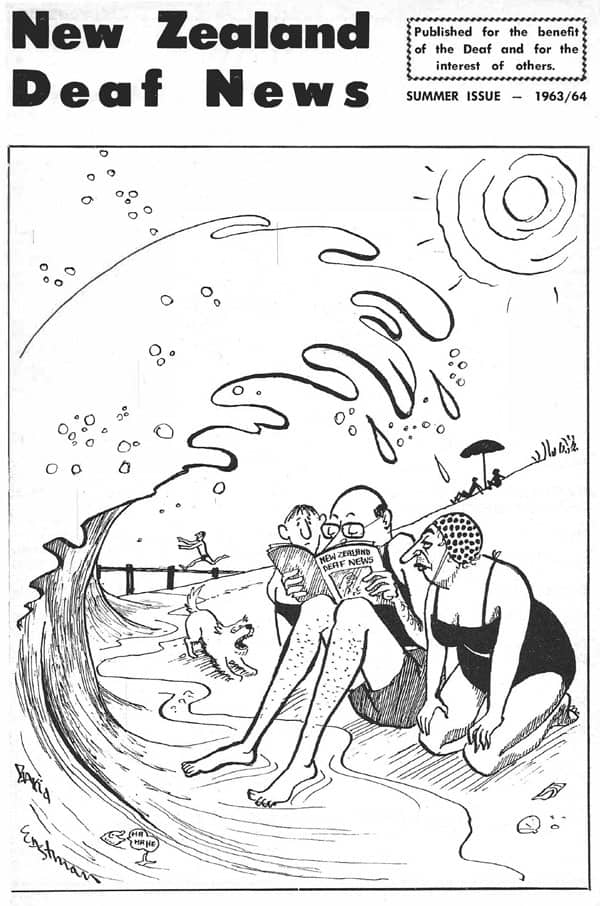John McRae, born in Te Awamutu on 8 August 1927, is filmed at his home in Napier where he lived with his wife Verna. John explains some highlights from his life story including his experiences at Deaf schools at van Asch (Sumner) and Titirangi and his wrestling where he represented New Zealand at the World Deaf Games in Finland, and his involvement in the New Zealand Deaf community. The video includes his commentary of various photos and objects in their house.
Memories of John McRae
2000 •
- Life Stories
John McRae is filmed at his home in Napier where he lived with his wife Verna. John explains some highlights from his life story including his experiences at school, travelling the world for Deaf sports, and his involvement in the Deaf community. The video includes his commentary of various photos and objects in their house.
Original format:
VHS
Reference number:
HT05-01-LS00
Copyright status:  This work is licensed under a Creative Commons Attribution-NonCommercial-NoDerivatives 4.0 International License
This work is licensed under a Creative Commons Attribution-NonCommercial-NoDerivatives 4.0 International License
 This work is licensed under a Creative Commons Attribution-NonCommercial-NoDerivatives 4.0 International License
This work is licensed under a Creative Commons Attribution-NonCommercial-NoDerivatives 4.0 International License
